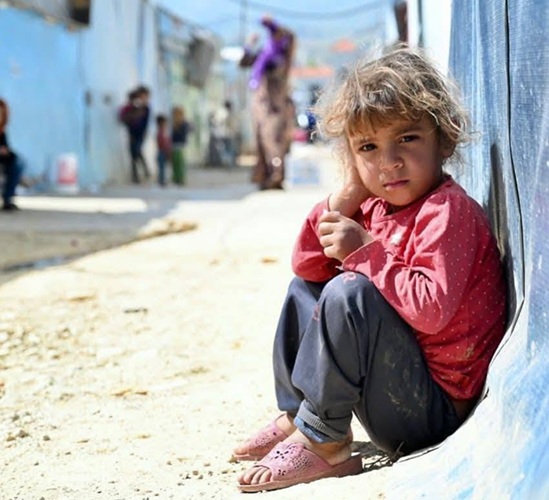Syed Ali Mujtaba
Voices of protest against India’s neighborhood first policy are being raised. This is done by five eminent personalities from Bangladesh, Sri Lanka, and Nepal.
In a statement on August 10, the five eminent personalities called upon India to refrain from interfering in their respective countries following recent changes in Bangladesh.
They are; Firdous Azim, professor of English, member of Naripokkho (a feminist organization) in Bangladesh, Manzoor Hasan, Centre for Peace and Justice, BRAC University in Dhaka, Kanak Mani Dixit, writer and founding editor Himal Southasia in Kathmandu Nepal, Sushil Pyakurel, former Commissioner, National Human Rights Commission in Kathmandu Nepal and Lakshman Gunasekara, journalist, social activist in Colombo, Sri Lanka.
They have issued a joint statement following that country’s social unrest and regime change. Their statement is published in the daily Prothom Alo a Bengali-language Daily from Dhaka.
The signatories demand that the government of India desist from interfering in their respective polities. They pointed out that New Delhi through its political, bureaucratic, and intelligence operatives interfered in the governance of these three countries with their capitals at Colombo, Dhaka, and Kathmandu. This statement has contributed to the unending political instability in their countries and has empowered autocratic regimes.
“India’s interference weakens the neighboring democracies and compromises their socio-economic advancement. It contradicts the Panchsheel principle of peaceful coexistence that was once advocated by India and belies the Narendra Modi government’s much-publicized ‘Neighbourhood First’ policy,” the statement said.
“Furthermore, it is beneficial to India’s interest in seeing South Asia as a whole achieve political stability and peace, which will benefit India’s economy and enhance its international standing,” the statement added.
Bangladesh- The signatories from Bangladesh say they have been grateful for Indian assistance at the time of its liberation in 1971, after decades since then New Delhi has sought to guide Dhaka’s politics for its purposes. These include the diversion of river waters as the upper riparian state, access to the Indian Northeast through Bangladeshi territory, and the use of Bangladesh as a sizeable market for Indian goods. New Delhi actively worked to prop up the autocratic regime of Sheikh Hasina over the last decade and received political and economic concessions in return.
Sri Lanka- The signatories from Sri Lanka say India’s interventionism in Sri Lanka peaked with the deployment of the Indian Peace Keeping Force (IPKF) in the late 1980s, which New Delhi reasoned was to protect India’s ‘national interest.’ This was amidst the Tamil insurgency. Since then Sri Lanka had to repeatedly wrestle with New Delhi’s encroachment in its political matters. In addition, New Delhi has been actively pushing Indian business conglomerates into Sri Lanka, which is also interfering with the internal affairs of the country.
Nepal – The signatories from Nepal say that India has been intervening in Nepal’s politics earlier through proactive politicians and diplomats, now it’s doing so through its intelligence agencies and Hindutva activists belonging to the RSS. Further, New Delhi is engaging some Nepalese politicians to maintain control over Himalayan state’s water resources.
The signatories from Nepal say, a significant coercive action was the blockade imposed on Nepal in 2015, even as the country was reeling from an earthquake, following the promulgation of the constitution that was not to New Delhi’s liking.
The joint statement says; “In each of our countries, there exist politicians and political parties that put self-interest before national needs and have been receptive to New Delhi’s interventionist moves. However, we are perplexed by the inability of Indian policymakers to appreciate that such interference creates layers of animosity against India that do not dissipate easily.”
The joint statement goes on; “As has happened in the case of Bangladesh, these interventionist plans ultimately fall apart, but New Delhi is moving from one folly to the next. Mistakes are repeated in neighborhood policy because New Delhi’s academia and media do not keep independent watch on their government’s assumptions and actions, unquestioningly following the dictates of their external affairs and home ministries.”
The statement advises New Delhi’- “A rigorous and introspective study of its South Asia policy, including an evaluation of past misadventures, would benefit India and the entire subcontinent. India’s regional presence would be more benign if New Delhi were to view neighboring countries through the eyes of its border regions, peoples, and economies.
The eminent personality’s rant goes on; “some of New Delhi’s sense of vulnerability about each of our countries is based on geography: Sri Lanka’s strategic positioning south of the peninsula, Nepal’s placement along the Himalayan range, and Bangladesh’s location between the mainland and the Northeast. None of these factors would be seen as problematic if New Delhi’s policymakers understood that our societies wish only the best for India, its government, and its people.
The statement rationalizing the anti-India sentiments in their countries, says; “much of the public acrimony directed at India is but a reaction to New Delhi’s interference in internal affairs of their countries.”
The signatories also talk about China; “New Delhi also seems to fear Chinese involvement in each of our countries, as if there were a coordinated plan at play to encircle India. To begin with, New Delhi must accept the sovereign right of each neighbor to deal with Beijing on its own accord, much as New Delhi does. We find it incongruous that China has become India’s largest trading partner even as New Delhi seeks to prevent the neighbors’ links with Beijing. We insist that Bangladesh, Nepal, and Sri Lanka are not and should not be in the sphere of influence of China, India, or any other power and that the alarm in New Delhi is misplaced.”
The signatories also talk about Maldives Bhutan and Pakistan. “We recognize that the Maldives and Bhutan too suffer from New Delhi’s efforts to be the decisive player in their internal and external affairs. The hostility between Islamabad and New Delhi has been distressing and constant, and it impacts not only the societies and economies of South Asia’s two largest countries but also holds hostage the agenda of upliftment across all our countries.
The joint statement sums up: “New Delhi can contribute to stable polities and long-lasting peace in South Asia by abandoning its overt and covert interference in the internal affairs of its neighbors. India should be supportive of the democratic aspirations of South Asia’s peoples and let them build their paths to the future.”
—–
Syed Ali Mujtaba is a journalist based in Chennai. He can be contacted at syedalimujtaba2007@gmail.com





0 Comments